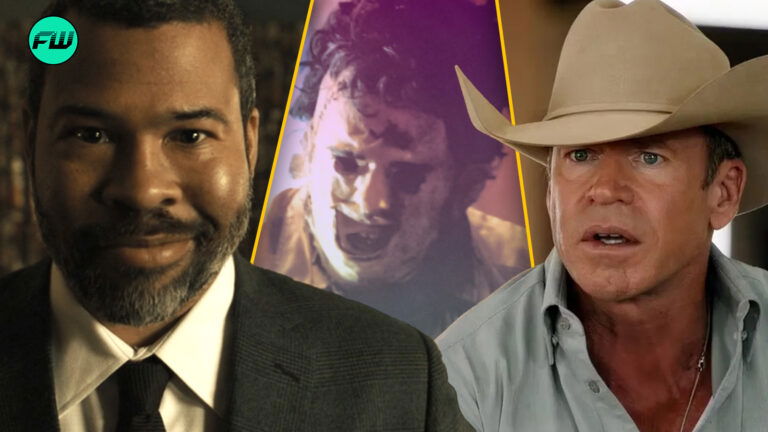When a series like Yellowstone delivers a blockbuster episode, audiences expect gunfights, brawls, or shocking betrayals. Yet the most recent episode, which earned an impressive 7.9 rating, proved that Taylor Sheridan doesn’t always need spectacle to grip viewers. Instead, he leaned into quiet moments, understated performances, and layered subtext, showing that subtlety can often leave the deepest mark. It’s a lesson in how powerful storytelling doesn’t always roar; sometimes it whispers, and those whispers echo louder than explosions.
At the heart of this episode was a series of carefully constructed character interactions that revealed how much weight silence, glances, and unfinished sentences can carry. Rather than staging another sprawling confrontation, Sheridan gave the characters room to breathe in their pain, regret, and suppressed rage. One of the most striking sequences involved John Dutton sitting quietly on his porch, the Montana landscape stretched endlessly behind him. No dialogue, no dramatic score—just the sound of wind rustling through the trees. In that stillness, Kevin Costner’s presence alone conveyed more about John’s burden than any monologue could. It was as though the land itself was speaking, reminding viewers of the Dutton family’s eternal tie to it.
The subtlety wasn’t limited to John. Beth, often portrayed as a whirlwind of chaos and ferocity, was presented in moments of quiet reflection. Kelly Reilly infused Beth with restrained intensity, showing a side of her that fans rarely see. Instead of her usual cutting remarks, she allowed silence and measured expressions to tell the story. That choice made the eventual eruption of emotion hit harder because viewers had already been lulled into the tension of waiting. It’s Sheridan’s mastery at work—he understands that stillness is a powerful storytelling device, one that can unsettle an audience even more than violence.
Jamie’s scenes, too, highlighted the potency of nuance. Wes Bentley portrayed him as a man suffocating under invisible weight. His lines were sparse, his body language stiff, his eyes betraying emotions he dared not voice. Sheridan positioned Jamie in dimly lit rooms, often with only a single lamp or window illuminating him. This visual choice mirrored Jamie’s psychological state, leaving viewers with the impression of a man living in shadows, trapped between obligation and desire. No screaming match or courtroom drama was necessary; the audience could feel his torment in the smallest of gestures.
Another layer of subtle storytelling came through Sheridan’s use of the environment. The Montana setting has always been more than a backdrop in Yellowstone—it’s a character. In this episode, the land seemed to echo the characters’ turmoil. Wide shots of vast, empty fields emphasized loneliness and isolation. A close-up of boots trudging through mud suggested the weight of carrying burdens too heavy to escape. The sound design even played a role—silences stretched just a beat too long, and natural sounds like crunching gravel or creaking wood carried more weight than a dramatic score. Sheridan’s restraint made the world itself feel alive, reacting to the characters’ choices in subtle, almost imperceptible ways.
The episode also demonstrated how subtlety builds tension for what’s to come. Sheridan didn’t need to reveal every card in this hour. Instead, he planted seeds—half-finished conversations, characters leaving thoughts unspoken, and symbolic imagery that hinted at looming disasters. A look exchanged across a dinner table became more electrifying than a physical altercation. A letter left unopened on a desk created more anticipation than a shootout. It’s the brilliance of foreshadowing without exposition, making audiences lean in closer, wondering what might unfold in the next episode.
Critics have often debated whether Sheridan relies too heavily on explosive drama—murders, betrayals, and shocking twists. But this 7.9-rated episode is proof that he knows how to pull back and let quiet moments breathe. The restraint demonstrated here was not weakness; it was confidence. Sheridan trusted his actors, his setting, and his audience enough to let silence carry the weight. In doing so, he reminded viewers that Yellowstone is not just about cowboys and conflict—it’s about legacy, silence, memory, and the subtle ways family trauma weaves itself into every choice.
Audiences responded strongly to this approach. Many fans expressed surprise at how moved they were by the smallest details: John’s silence, Beth’s stillness, Jamie’s hollow stare. Social media buzzed with commentary not about the lack of action but about how hauntingly effective the quietness was. For a series that often thrives on spectacle, this episode proved that Sheridan’s toolkit is broader than critics sometimes acknowledge. He can deliver the kind of quiet devastation that lingers long after the credits roll.
Thematically, the episode also underscored one of Yellowstone’s core messages: that power is often exercised not in loud declarations but in subtle gestures. A hand withheld from signing a contract, a nod exchanged in silence, a word left unsaid—these are the choices that shape destinies in the Dutton world. Sheridan’s script reinforced that lesson, making the characters’ restraint more terrifying than their outbursts. Viewers knew that the storm was coming, but the calm beforehand was where the true artistry lived.
In a broader sense, this episode might represent a turning point for Yellowstone. Sheridan’s choice to emphasize subtlety shows his confidence in both his storytelling and his audience. He doesn’t need to shock viewers every week with a death or betrayal; he can hold their attention with the smallest details, trusting them to read between the lines. That’s the mark of a seasoned storyteller. He’s teaching his audience to listen, to watch closely, and to understand that sometimes the loudest statements are whispered.
As the series marches toward its climax, the power of this episode will linger. It proved that Sheridan is not confined to one storytelling style. He can be explosive, yes, but he can also be delicate, weaving meaning through silence, body language, and unspoken tension. In doing so, he gave fans one of the most memorable installments of the season—not because it shocked them, but because it made them feel the weight of everything left unsaid.